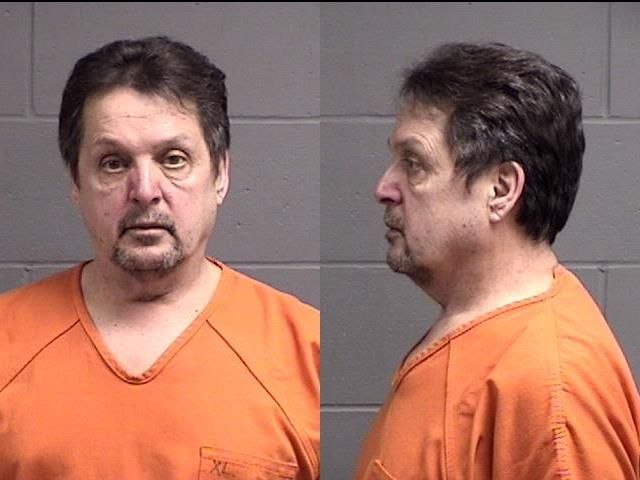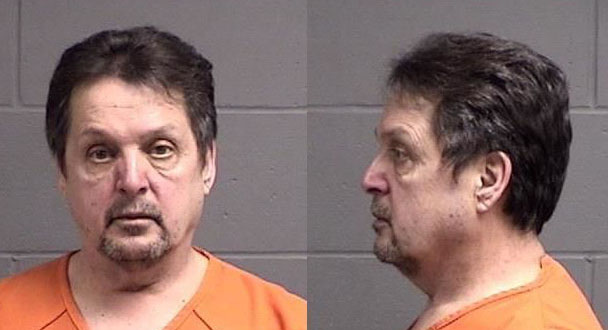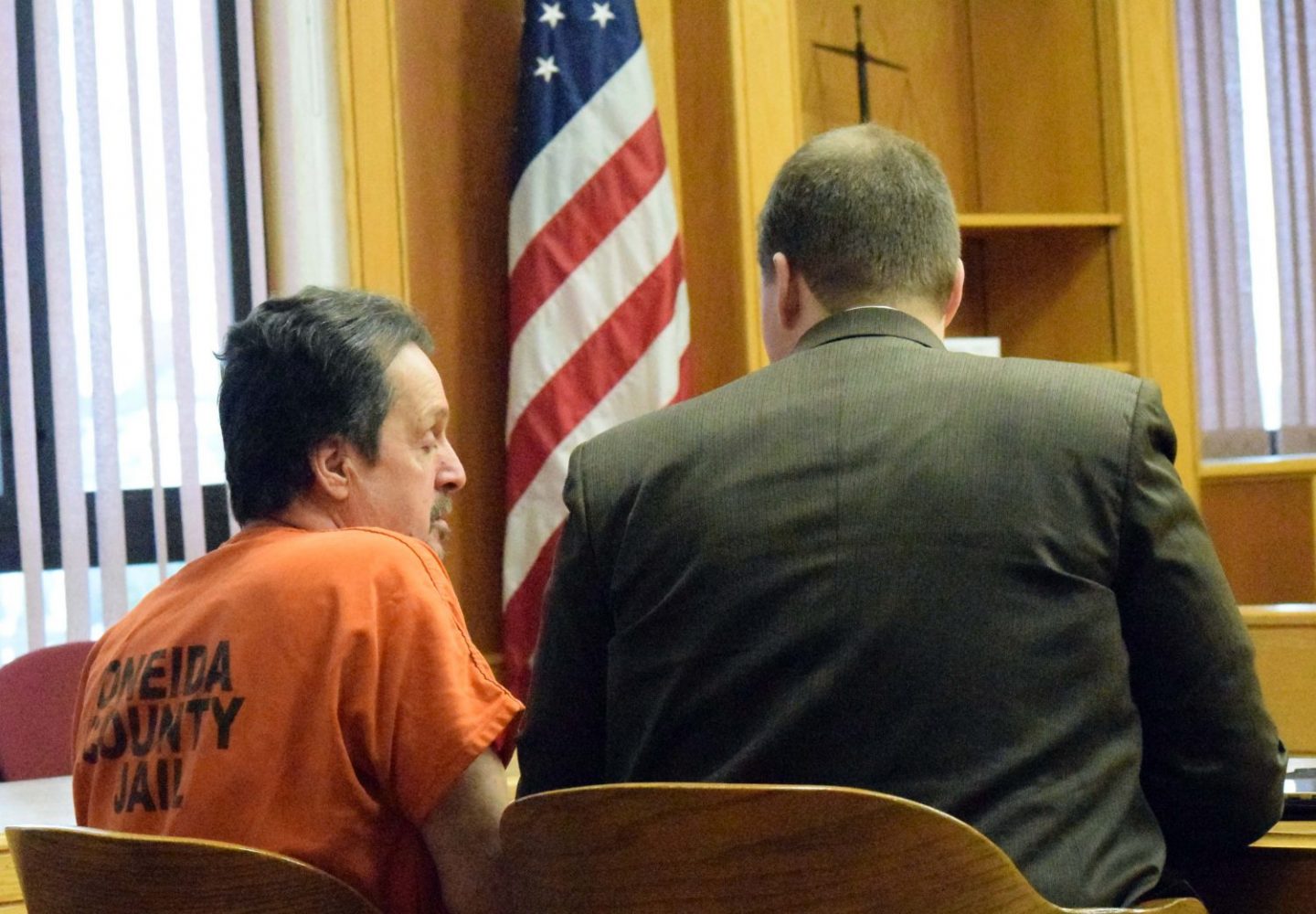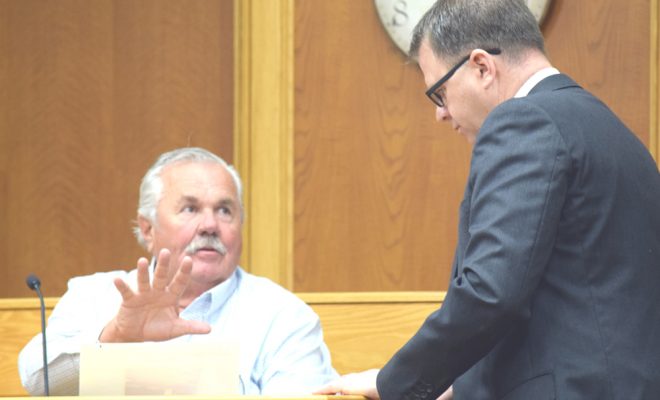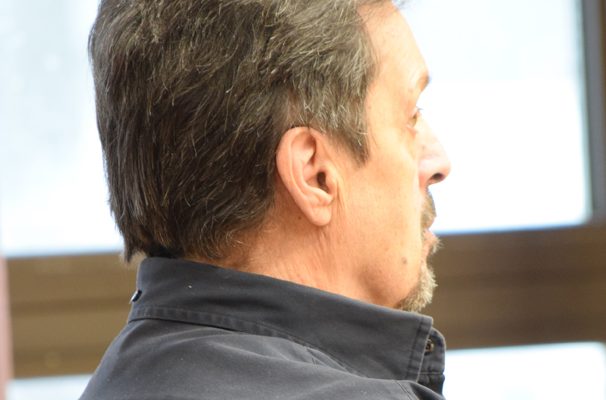Prosecution and defense present closing arguments in Mendez murder trial
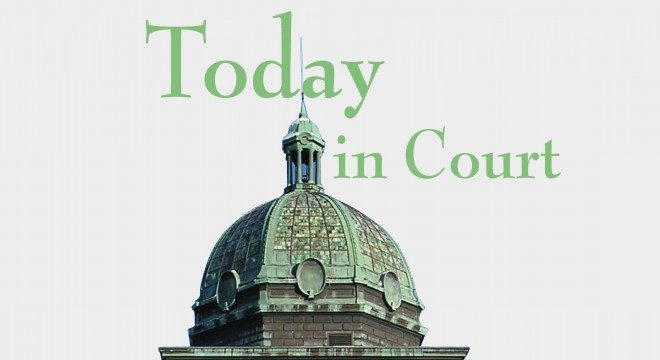
By Lori C. Adler
Star Journal Reporter
Both District Attorney Michael Schiek and Peter Pruzinski, attorney for the defense, presented their closing arguments Wednesday, the final day of the Mendez murder trial. Robin Mendez is accused of the murder of wife, Barbara Mendez, in Minocqua in 1982.

District Attorney Michael Schiek presents his closing argument during the final day of the Mendez murder trial.
Schiek went through each and every witness testimony before Judge Jill Falstad, outlining what the state believes to be the timeline of events leading up to the murder. Schiek pointed out key elements to how the victim was found, including “no defensive wounds” on her body and “no disorganization that would indicate a struggle.” He noted that, while some money was reported missing at the credit union where Barbara Mendez worked and was found dead, over $17,000 was left in the safe, and the victim’s purse was still under her desk. Schiek also described how Shari Anderson, a close friend of Barbara, testified that Barbara told her the day before her murder that she was concerned about the relationship her husband was having with 14-year-old Jodi (Lensert) Rolloff and planned to confront her husband that evening. This is the reason for Barbara’s murder, Schiek hypothesized, stating “the motive is the disclosure of the sexual assault of Jodi.”
Schiek noted that, though circumstantial, there are 75 pieces of evidence plus the confession to two inmates who were celled with Mendez for a short time following his arrest in February 2018. The inmates claimed in recorded interviews that Mendez told them he had killed his wife. “That’s an admission, Judge,” Schiek insisted.
Pruzinski outlined several theories regarding the murder that he felt cast reasonable doubt of Mendez committing the crime, stating simply, “Robin Mendez is a sex offender, not a murderer.”

Defense Attorney Peter Pruzinski hopes to demonstrate reasonable doubt of Mendez’s involvement in the murder during his closing statement.
A robbery gone wrong was Pruzinski’s main hypothesis. “It’s absolutely a common sense reason that this was a robbery,” adding that “the evidence best fits Thomas Boze. Pruzinski alleges Boze entered the credit union that evening with plans to commit robbery, but the robbery went wrong, which is why, Pruzinski concludes, some of the money remained.
As for the admission of guilt to the two inmates, Pruzinski explained that these two individuals were put in the same cell as someone accused of murder, and exclaimed, “What does that say about them?” Pointing out that it is known that inmates often have strong feelings about child sex offenders, Pruzinski went on to say that these inmates may have had a bias toward Mendez for that reason. In addition, one of the inmates, Pruzinski states, has a tattoo of the emblem of a white supremacy group, and Mendez has a Hispanic name. “All that bears on their credibility,” Pruzinski adds.
Following closing arguments from both the prosecution and the defense, court was adjourned to allow Judge Falstad time to deliberate. A ruling on the case is expected next Tuesday, April 30, at 1:00 p.m.
Leave a reply
You must be logged in to post a comment.

